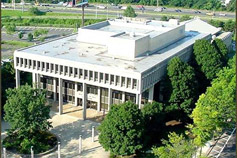Senior United States District Judge for the District of Connecticut
Staff Information

BRIEN McMAHON FEDERAL BUILDING
United States Courthouse
915 Lafayette Boulevard
Suite 411
Bridgeport, Connecticut 06604
Location: Courtroom 1
| Julia Reis | Courtroom Deputy | 203-579-5952 |
| Suchait Kahlon | Law Clerk | 203-579-5714 |
| Rachel Connelly | Law Clerk | 203-579-5714 |
| Meredith Kilburn | Law Clerk | 203-579-5714 |
| Melissa Cianciullo | Court Reporter | Melissa_Cianciullo@ctd.uscourts.gov |

BRIEN McMAHON FEDERAL BUILDING
United States Courthouse
915 Lafayette Boulevard
Suite 411
Bridgeport, Connecticut 06604
Location: Courtroom 1
| Chambers Telephone | 203-579-5714 | |
| Chambers Fax | 203-579-5704 | |
| Clerk's Office Telephone | 203-579-5861 | |
| Clerk's Office Fax | 203-579-5867 |